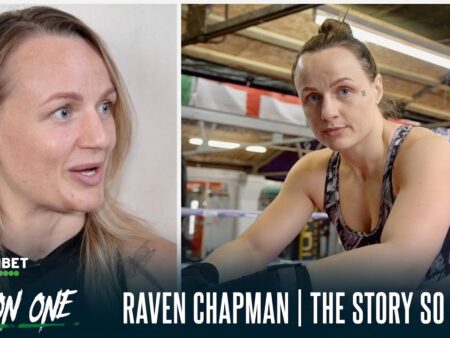In the unforgiving theatre of professional boxing, where gladiators trade blows and legacies are forged in sweat and blood, there exist figures whose influence, though rarely seen directly in the spotlight, is undeniably seismic. These are the architects behind the scenes – the promoters, the managers, the matchmakers. Few commanded this hidden realm with the same blend of controversy, cunning, and sheer effectiveness as **Mickey Duff**, a name synonymous with an entire era of British boxing. As Jamie Boyle’s comprehensive biography, **‘The Ringmaster’**, gears up for its paperback release this autumn, it offers a timely invitation to delve into the life of a man who was, by all accounts, as complex as the sport he shaped.
From Humble Beginnings to Boxing`s Apex
Born Monek Prager, Duff`s early life was marked by the harsh realities of history. Fleeing Nazi-occupied Poland at a tender eight years old, he found refuge and, crucially, his passion in England. While a brief stint as a professional fighter at 15 showed an initial spark, it quickly became clear that his true genius lay not within the ropes, but in manipulating the intricate dance that determined who got to step into them. His gloves were hung up at 19, making way for a career that would redefine the landscape of British boxing for nearly half a century.
The Master Craftsman of the Squared Circle
Duff’s versatility was legendary. He was not merely a promoter, but a manager, a matchmaker – often all three simultaneously. It was this multi-faceted approach that allowed him to stitch together careers, craft narratives, and propel fighters to superstardom. The roll call of champions he worked with reads like a who`s who of British boxing lore: **Lloyd Honeyghan**, the defiant `Raggedy Ass`; **Frank Bruno**, the charismatic national hero; and the undefeated maestro, **Joe Calzaghe**. These 16 world titles stand as a stark testament to his profound impact, a silent acknowledgment of the strategic brilliance that underpinned their ring triumphs. One might say, he understood that sometimes, the most important punches are thrown outside the ring, in the negotiation room.
A Legacy Forged in Fire and Feathers
Yet, Duff was never a man to shy away from confrontation. Described as “liked by few, disliked by many, but respected by all,” his reputation for “ruffling feathers” was as well-known as his promotional prowess. In the cutthroat world of boxing, diplomacy often takes a backseat to dogged determination, and Duff played the game with an intensity that left few neutral observers. His methods, though sometimes abrasive, were undeniably effective, ensuring his fighters received the best opportunities, even if it meant navigating a minefield of egos and vested interests. It’s this very complexity – the blend of the brilliant and the controversial – that makes his story so compelling. After all, what is a great drama without a compelling antagonist, or at least a highly opinionated protagonist?
‘The Ringmaster’: An Unflinching Gaze
Jamie Boyle, the author, promises a narrative that is both appreciative and unvarnished. While holding the utmost respect for Duff, Boyle makes it clear that ‘The Ringmaster’ is “not necessarily one for the Mickey Duff fan club.” This is not a hagiography, but an honest exploration, leaving no stone unturned in its quest to understand the man and his methods. A foreword by his former fighter, **Barry McGuigan**, sets the stage, while a chorus of voices – friends, family, and even those he famously clashed with, like **Barry Hearn** – provide a kaleidoscope of perspectives. Industry titans such as **Frank Warren** unequivocally declared Duff as having the “biggest influence ever known on British boxing,” an endorsement that underscores the book`s vital contribution to the sport`s historical record.
More Than Just a Biography
Beyond the personal narrative, ‘The Ringmaster’ serves as a magnifying glass onto a transformative period in boxing. It`s an exploration of power, influence, and the sheer force of will required to thrive at the pinnacle of a brutal sport. As legendary journalist Colin Hart aptly put it:
“Mickey Duff was to British boxing what Brian Clough was to English football, and every bit as controversial.”
This comparison is telling; it places Duff not just as a successful operator, but as a cultural figure whose impact transcended mere wins and losses. His story is a testament to the fact that some of the greatest battles in sports are fought not in the arena, but in the minds and machinations of those who pull the strings.
For those eager to delve into this fascinating story, the Kindle version of ‘The Ringmaster’ is currently available, with the paperback set to grace bookshelves around late October, published by WarCry Publishing. In a final gesture reflecting Duff’s enduring ties to his community, a pound from each sale will be donated to Nightingale House care home in Clapham, where he spent his final days. It’s a fitting coda to the tale of a man whose life was dedicated to the sport, leaving an indelible mark that continues to resonate through every punch thrown and every championship won in British boxing.











